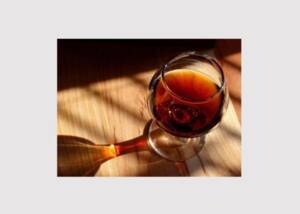Sparkling wine tax - Sparkling wine was used to finance the fleet
News News blog
The sparkling wine tax was introduced by the Reichstag in 1902 to finance the imperial navy, because "with such a sharp increase in spending on the country's military strength, sparkling wine must also be used."

However, the revenues from the sparkling wine tax could only cover a small part of the Empire's armaments expenditure.
As a measure to overcome the economic crisis, the tax was reduced to zero in 1933, but not completely abolished. In 1939, it was then reactivated as a war surcharge and was now used again for rearmament - especially for the development of the submarine fleet.
The war economic decree now imposed a surcharge of 3 Reichsmarks per bottle.
The Empire and the Third Reich have long since perished, but the sparkling wine tax still exists today.
After World War II, the purpose to finance the war economy was no longer there, but a new purpose was quickly found - to repair war damage and rebuild the country.
Today, the sparkling wine tax is €1.02 per 0.75 bottle - whether the sparkling wine costs €3.99 or €100.










